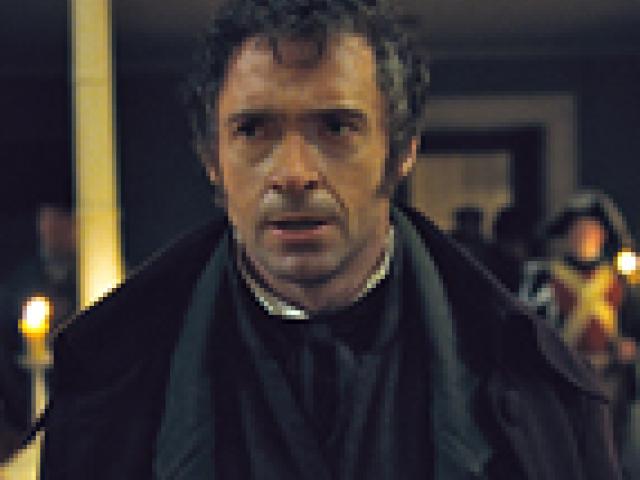Les Miserables and the Gospel Story

Les Miserables, at its core, is the story of a downtrodden man’s salvation. The main character, Jean Valjean, is a convict without hope. It’s when a benevolent bishop shows God’s grace in a life-saving way that Valjean begins his transformation story.
Starring Hugh Jackman in the role of Valjean, Les Miserables beautifully shows how God’s mercy can save a life. Conversely, the actions of Inspector Javert (played by Russell Crowe) show how striving for salvation through works can break one.
Speaking of his character, Jackman says, “Jean Valjean comes from a place of the greatest hardship that I could never imagine—I don’t think any of us here could—and manages to transform himself from the inside.”
Victor Hugo uses the word ‘transfiguration.’ It’s even more than a transformation, because he becomes more god-like. It’s a religious… it’s a spiritual change. It’s something that happens from within. And it’s to me, one of the most beautiful journeys every written, and I didn’t take the responsibility of playing the role lightly. I think it’s one of the greatest opportunities I’ve ever had, and if I’m a tenth of the man Jean Valjean is, I’ll be a very happy man.”
What his character, Valjean, ultimately learns is how to accept love and grace and that by doing that he can honor God. Javert holds to the belief that honest work pleases the Lord and if you falter you are condemned.
With the bishop being the one who reaches out to Valjean, thereby saving him for God’s work, the story shows the life-changing impact grace can have when extended to another. In some ways, Les Miserables encourages people of faith to hold fast to the faith while extending the love and mercy of Christ to all they meet. The Christian Church ought to be the refuge and rescue all of society can lean on, and that’s something author Victor Hugo wanted the Church at the time to understand.
“There's a large comment in the book about the church at the time. It made [Hugo] very, very unpopular when he wrote it. It was a big behemoth, powerful, distant, quite excluding thing. There was a lot of fire and brimstone,” says Jackman. “I think he was reminding everyone at the time of the Jesus Christ example, which is to love people. And it's never been more relevant.”
Though Hugo wrote Les Miserables in the 1860s, the story’s spiritual and moral themes are still applicable today. Intertwined with Valjean and Javert’s stories, there is Fantine’s.
Anne Hathaway plays the destitute woman who resorts to prostitution to make money to provide for her daughter, Cosette. To get ready for the role, Hathaway looked into that world to discover what the character must feel being brought that low.
“I tried to get inside the reality of her story as it exists in our world,” Hathaway says. “To do that, I read a lot of articles and watched a lot of documentaries and news clips about sexual slavery. For me and for this particular story, I came to the realization that I had been thinking about Fantine as someone who lived in the past, but she doesn’t. She’s living in New York City right now. She’s probably less than a block away. This injustice exists in our world, and so every day that I was her, I just thought, ‘This isn’t an invention, this isn’t me acting. This is me honoring that this pain lives in this world, and I hope that in all of our lifetimes, like today, we see it end.’”
More than just securing grace for himself, Valjean extends it to those he meets as his story progresses, as we are to do in our lives. The bishop is Christ-like toward him, and he in turn is gracious to Fantine. We are all to be “the Jesus Christ example”, as Jackman puts it, and love one another.





